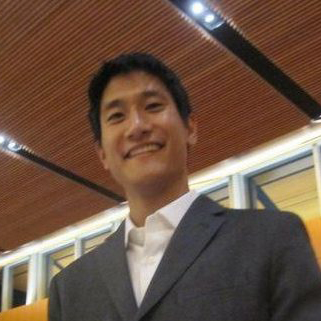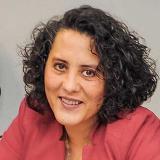Purdue Faculty whose research centers in cyberlearning are welcome to become members. Current participants are:
| Name | Member | Research Interest |
|---|---|---|
|
Nicoletta Adamo, CGT nadamovi@purdue.edu |

|
Her research interests focus on the application of 3D animation technology to education, HCI and visualization. Her research is at the intersection of technology, cognition and instruction, with current projects on animated pedagogical agents, signing avatars, animation-supported learning, and computer games for learning. |
|
Mimi Boutin, ECE, MATH, mboutin@purdue.edu |
|
Her current research interests include image and video processing, object recognition, automatic text translation, portable device applications and computational mathematics. |
|
Jennifer DeBoer, ENE, ME deboerj@purdue.edu |

|
Her current research investigates how engineering education and technology tools can realize opportunities for diverse students around the world. Specifically, she investigates international engineering education, education and economic development, educational technology, online learning, and quantitative research methods. |
|
Stephanie Gardner, BIOL sgardne@purdue.edu |
|
Her research group focuses within the context of engaging undergraduate students in the process of science, critical thinking, and using visualizations to understand and communicate data and concepts. |
|
Colin Gray, CGT gray42@purdue.edu |

|
His research focuses on the role of student experience in informing a critical design pedagogy, and the ways in which the pedagogy and underlying studio environment inform the development of design thinking, particularly in relation to critique and professional identity formation. |
|
Dominic Kao, CIT kaod@purdue.edu |

|
His research looks at using virtual worlds and games for Science, Technology, Engineering, and Math (STEM) education. He is interested in the properties of virtual worlds (game avatars, graphical embellishments, badges, etc.), in addition to building new worlds. His work lies at the intersection of human-computer interaction, education, and digital games. |
|
Jeffrey Karpicke, PSYC karpicke@purdue.edu |

|
His research focuses on human learning and memory, especially retrieval processes; Cognitive science and education; Complex learning, comprehension, and knowledge application; Learning and cognitive strategies in children; Metacognition and self-regulated learning; Educational technology and computer-based learning. |
|
Alejandra J. Magana, CIT, ENE admagana@purdue.edu |

|
Her research program investigates how model-based cognition in Science, Technology, Engineering, and Mathematics (STEM) can be better supported by means of expert technological and computing tools such as cyberinfrastructure, cyber-physical systems, and computational modeling and simulation tools. |
|
Muhsin Menekse, ENE, C&I menekse@purdue.edu |
|
His research focus is on higher level reasoning in complex tasks in STEM domains. Specifically, I investigate how classroom activities and learning environments affect conceptual understanding in engineering and science. A second research focus in on verbal interactions in collaborative learning settings. A third research focus is on metacognition and its implications for learning such as exploring methods to enhance student reflection-teacher feedback cycle in blended learning environments. |
|
Paul Parsons, CGT parsonsp@purdue.edu |

|
His research is in the area of human-centered design of interactive technology, with a focus on human cognition, visual interfaces, and interaction design. |
|
Sanjay Rebello, PHYS, C&I rebellos@purdue.edu |

|
His research focuses on the use of visual cueing & feedback to facilitate problem solving We investigate the use of visual cueing and feedback to improve problem solving skills in STEM; facilitating student learning using physical and virtual manipulatives; and infusing pedagogical content knowledge into a physics course for future elementary teachers. |
|
Amy Riebman, ECE reibman@purdue.edu |
|
Her research interests include image and video analysis with applications to image and video quality assessment. Her goal is to improve overall system performance by integrating accurate quality estimators into real systems. A second application is in video analytics for enhancing enjoyment and learning of recreational activities through video analysis of daily activities. |
|
Greg Strimel, TLI gstrimel@purdue.edu |

|
Strimel’s efforts are to enhance the appropriately scaffolded teaching of P-12 engineering by studying engineering design-based instructional interventions and engineering design cognition. |
